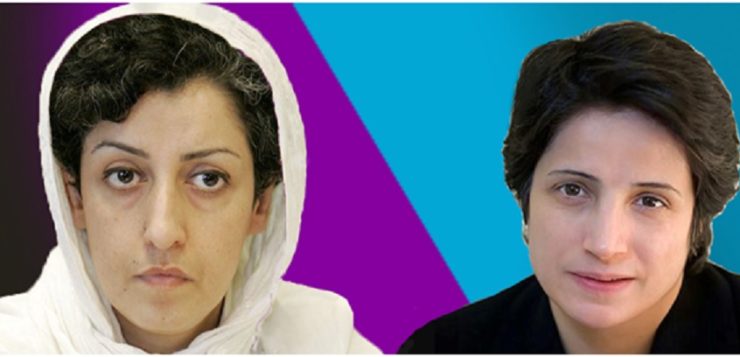By INU Staff | August 18, 2018
INU – The US State Department confirmed on Wednesday, August 15, that it is “closely monitoring” reports of human rights abuses in Iran.
State Department spokesperson Heather Nauert said: “We are closely monitoring reports of numerous human rights defenders and members of minority groups, such as the Gonabadi Dervishes, who were unlawfully or arbitrarily incarcerated in Iranian regime prisons.”
This announcement came after Tehran’s Revolution Court sentenced prominent Gonabadi Dervish Mostafa Abdi to over 26 years in prison for serving as an administrator of a news site dedicated to the Gonabadi dervishes. Seven other dervishes were sentenced to a total of 59 years in prison by the same court.
The US also raised concerns about the detention of two Iranian women, Narges Mohammadi and Nasrin Sotoudeh, who were sentenced to 16 years in prison and five years respectively.
Mohammadi, a mother of two, was peacefully advocating for human rights reforms, while Sotoudeh, a prominent Iranian human rights lawyer, was arrested for acting as a defence lawyer.
Nauert said: “[Sotoudeh] is facing national security charges for legally representing [an]Iranian woman who was charged with removing her headscarf in public… The Iranian regime jails people for peacefully exercising their rights, and then jails people were asked to defend them.”
The EU has also expressed concerns about Sotoudeh, 55, who was detained in June amid a crackdown on attorneys representing “national security” cases, charges the Regime often levies against political prisoners.
An EU spokesperson said: “The EU is seriously concerned about the arrest of the prominent Iranian lawyer and 2012 laureate of the European parliament’s Sakharov Prize, Ms. Nasrin Sotoudeh.”
Sotoudeh denies the charges against her and is refusing to post the $95,000 bail, according to her husband Reza Khandan, as she considers the accusations to be “baseless” and the bail to be “disproportionate”.
Khandan said that his wife had been sentenced in absentia, under Article 510 of Islamic Penal Code, which covers charges of national security and espionage. Khandan said that his wife had never been charged with espionage and that the court couldn’t convict her for a crime that she had not been indicted for.
Sotoudeh wrote to Tehran Prosecutor Abbas Ja’fari Dolatabadi and told him bravely that the Regime’s prosecution of human rights defenders and women seeking control of their bodies would not stop the people for standing up for themselves.
Indeed, it seems quite obvious that the situation of human rights under the mullahs will not improve and there will be no justice. Therefore, the Regime must be expelled from Iran.




